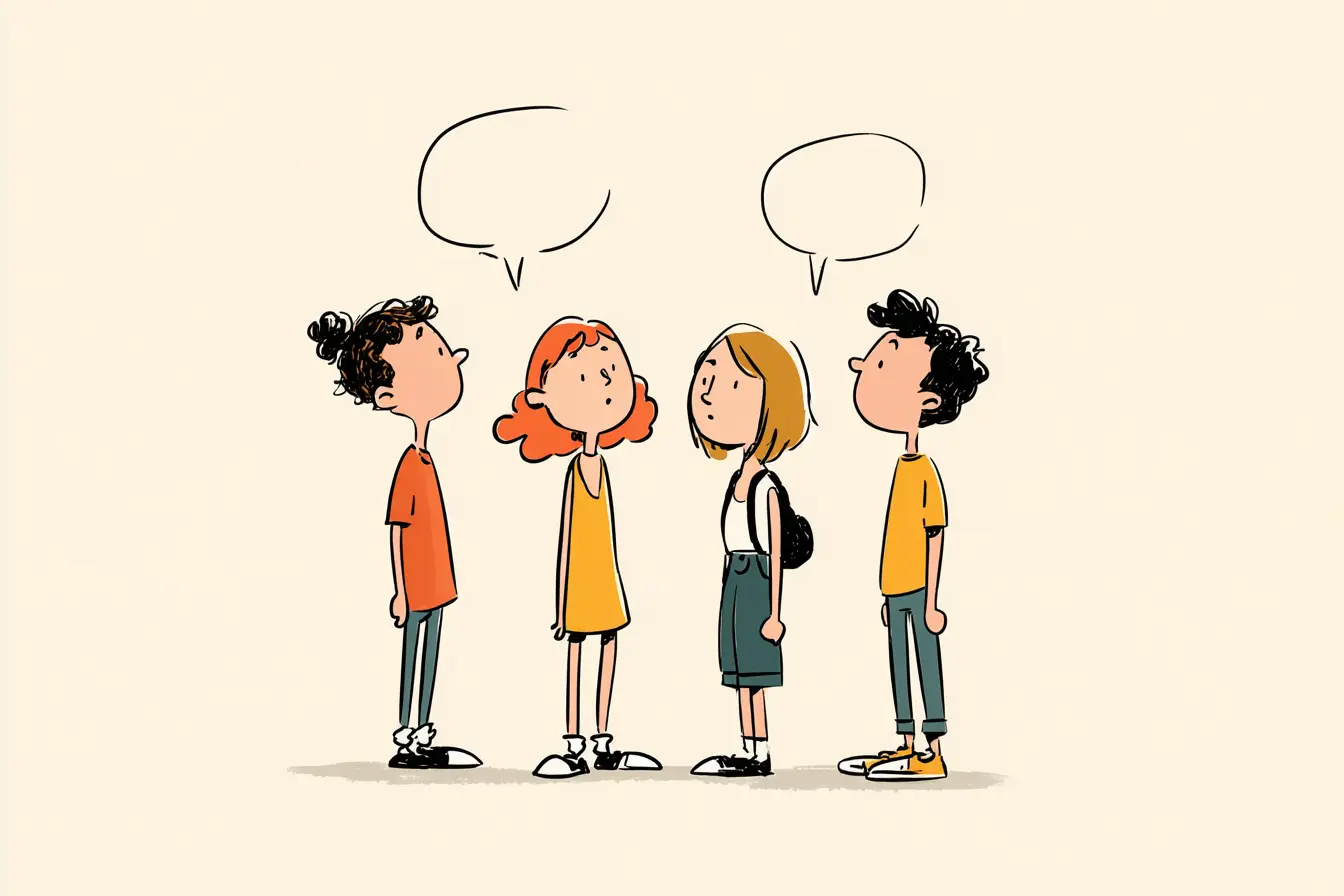Superstitions are popular beliefs passed down through generations, filled with mystery and symbolism. While they vary from place to place, it's fascinating to discover the parallels and differences between superstitions in English-speaking cultures and those in Spanish-speaking countries.
Good Luck Superstitions
In English-Speaking Cultures
Good luck is often sought through simple yet meaningful actions or items:
- Knocking on wood: A common act to prevent luck from changing after expressing something positive.
- Four-leaf clovers: Rare plants linked to good fortune, with origins in Celtic mythology.
- Lucky pennies (Penny found, penny earned): Finding a coin, especially heads-up, symbolizes prosperity.
- Rabbit's foot: Carrying a rabbit’s foot as a charm is considered a symbol of luck, especially in the United States and the UK. Its origins trace back to ancient Celtic traditions.
- Lucky numbers: In English-speaking cultures, the number 7 is often seen as a symbol of luck and success.
- Wishbones: A popular tradition during Thanksgiving in the U.S., where two people pull on either side of a turkey’s "Y"-shaped wishbone. The person with the larger piece is believed to have their wish come true.
In Spanish-Speaking Cultures
Good luck superstitions vary but often involve amulets and rituals:
- In Mexico, amulets like ojo de venado (deer eye charms) or horseshoes are commonly used to attract good fortune.
- Coins in shoes: In Argentina and Colombia, placing a coin in the right shoe during important celebrations is believed to promise financial fortune.
- Basil leaves under the pillow: In Peru, sleeping with basil under your pillow is thought to attract prosperity and revealing dreams.
- Wheat spikes: In Chile and Bolivia, keeping wheat spikes at home symbolizes abundance and good fortune.
Bad Luck Superstitions
In English-Speaking Cultures
Some of the most well-known examples include:
- Putting shoes on the table: A lesser-known superstition in some English-speaking regions, believed to attract conflict and misfortune.
- 13 at the table: Inspired by the Last Supper, this superstition warns that one of the attendees might face bad luck if 13 people share a meal.
- Friday the 13th: This day is synonymous with bad luck, especially in the U.S. and the UK.
- Opening an umbrella indoors: Believed to bring bad luck, this may have originated from the physical dangers of early umbrella designs.
In Spanish-Speaking Cultures
Bad luck superstitions are equally abundant:
- Tuesday the 13th: Unlike English-speaking cultures, Tuesday the 13th is considered a day of misfortune in Mexico, Spain, and other countries.
- Crossing paths with a black cat: While shared with other cultures, this belief has deep roots in Hispanic traditions.
- Placing a purse on the floor: In Mexico, Argentina, and Colombia, putting a purse or wallet on the ground is said to invite financial troubles.
- Spilling water on the table: In Chile and Bolivia, accidentally spilling water on the table can bring family arguments or conflicts.
- Giving knives as gifts: In Spain and Venezuela, gifting knives is associated with cutting ties in friendships or romantic relationships.
New Year’s Superstitions
In English-Speaking Cultures
New Year traditions aim to ensure prosperity and love:
- Eating black-eyed peas in the southern U.S. is a ritual for prosperity.
- Kissing someone at midnight symbolizes strong emotional bonds for the year ahead.
In Spanish-Speaking Cultures
New Year’s superstitions are rich in color and symbolism:
- Eating 12 grapes at midnight, representing wishes for each month of the year.
- In Mexico, walking around with a suitcase symbolizes future travel, while sweeping the house expels bad energy.
- Wearing red underwear for love and yellow for money is a popular tradition in several countries.
Superstitions Related to Natural Events
In English-Speaking Cultures
- Double rainbows: While mostly associated with good luck, some believe they signify significant life changes.
- Morning fog: In English folklore, dense fog symbolizes spirits nearby, which can be seen as either eerie or ominous.
- Thunderstorms: Severe storms with thunder and lightning were historically seen as signs of divine anger in rural communities.
- Strong eastern winds: Maritime folklore suggests that an east wind brings bad luck for departing ships.
In Spanish-Speaking Cultures
- Solar eclipses: In indigenous cultures of Mexico and Central America, supersticiones del eclipse solar suggest eclipses negatively affect pregnant women, who often wear pins for protection.
- Volcanic eruptions: In Ecuador and Chile, eruptions are thought to signal displeasure from the gods, often tied to local legends.
- Earthquakes: In seismic areas like Peru and Mexico, unusual animal behavior is interpreted as a supernatural warning of impending earthquakes.
- Rainbows: In some Andean villages, walking under a rainbow is believed to alter one’s luck, as it is linked to supernatural forces.
- Sudden cold winds: In Argentina and Uruguay, abrupt changes in wind are sometimes seen as omens of illness or conflict.
Common Superstitions
Some superstitions are shared between English-speaking cultures and Spanish-speaking countries, reflecting a similar outlook on good and bad luck:
- Breaking a mirror: In both cultures, breaking a mirror is considered bad luck. In English-speaking countries, it’s linked to the soul’s reflection, while in Hispanic cultures, it’s tied to personal or familial misfortune, often lasting seven years.
- Walking under a ladder: This widely shared belief stems from religious roots in English-speaking cultures, associating the ladder’s triangular shape with the Holy Trinity. In Hispanic cultures, it symbolizes danger or bad omens.
- Spilling salt accidentally: In both cultures, spilling salt is seen as a sign of misfortune. The shared solution is to toss a pinch of salt over the left shoulder to neutralize the negative energy.
- Crossing fingers: A universally recognized gesture to attract good luck or express hope.
- Toasting: While toasting is a symbol of celebration and goodwill in both cultures, maintaining eye contact during the toast is considered essential to ensure sincerity and good fortune in relationships.
Superstitions reflect the beliefs, values, and fears of the societies that practice them. For more insights into cultural practices, we recommend reading our article about Christmas traditions in different countries.


















